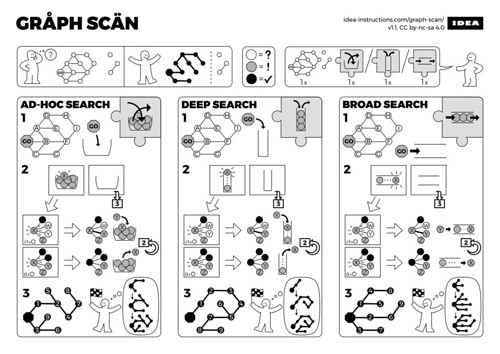Stuff The Internet Says On Scalability For March 30th, 2018
 Friday, March 30, 2018 at 8:56AM
Friday, March 30, 2018 at 8:56AM Hey, it's HighScalability time:

If you like this sort of Stuff then please support me on Patreon. And I'd appreciate if you would recommend my new book—Explain the Cloud Like I'm 10—to anyone who needs to understand the cloud (who doesn't?). I think they'll learn a lot, even if they're already familiar with the basics.
- 6,000: new viri spotted by AI; 300,000: Uber requests per second; 10TB & 600 years: new next-gen optical disk; 32,000: sites running Coinhive’s JavaScript miner code; $1 billion: Uber loss per quarter; 3.5%: global NAND flash output lost to power outage; 100TB: new SSD; 48TB: RAM on one server; 200 million: Telegram monthly active users; 2,000: days Curiosity Rover on Mars; 225: emerging trends; 4,425: SpaceX satellites approved;
- Quotable Quotes:
- @msuriar: Uber's worst outage ever: - Master log replication to S3 failed. - Logs backup up on primary. - Alerts fire but are ignored. - Disk full on primary. - Engineer deletes unarchived WAL files. - Config error prevents failover/promotion. #SREcon
- @thecomp1ler: Most powerful Xeon is the 28 core Platinum 2180 at $10k RSP and >200W TDP. Due to the nature of Intel turbo boost it almost always operates at TDP under load. Our ARM is the Centriq 2452 at less than $1400 RSP, 46 cores and 120W TDP, that it never hits. Beats Xeon 9/10 workloads.
- Arjun Narayan: This is also finally the year when people start to wake up and realize they care about serializability, because Jeff Dean said its important. Michael Stonebraker, meanwhile, has been shouting for about 20 years and is very frustrated that people apparently only care when The Very Important Googlers say its important.
- @xleem: Simple Recipe: 1) Identify system boundaries 2) Define capabilities exposed 3) Plain english definitions of availabilty 4) Define technical SLO 5) measure baseline 6) set targets 7) iterate#SREcon
- Jordan Ellenberg~ For seven years, a group of students from MIT exploited a loophole in the Massachusetts State Lottery’s Cash WinFall game to win drawing after drawing, eventually pocketing more that $3 million. How did they do it? How did they get away with it? And what does this all have to do with mathematical entities like finite geometries, variance of probability distributions, and error-correcting codes?
- Jeff Dean: ML hardware is at its infancy. Even faster systems and wider deployment will lead to many more breakthroughs across a wide range of domains. Learning in the core of all of our computer systems will make them better/more adaptive. There are many opportunities for this.
- Teller: Here's a compositional secret. It's so obvious and simple, you'll say to yourself, "This man is bullshitting me." I am not. This is one of the most fundamental things in all theatrical movie composition and yet magicians know nothing of it. Ready? Surprise me.
- @kcoleman: OH (from an awesome Lyft driver): “Today has been great. I’ve been blessed by the algorithm.” Immediately had an eerie feeling that this could become an increasingly common way to describe a day.
- Jim Whitehurst [Red Hat chief executive]: We added hundreds of customers in the last year, while Pivotal only added 44 new customers. Their average deal size is $1.5 million, quite large. So they are more the top-down, big company kind of focus. We have over 650 customers [for OpenShift], we added hundreds this past year, and we are growing faster than Pivotal. We thought we were are performing favorably compared to them, but this is the first time we had the data to really compare.
- @danctheduck: My GDC takeaway: Everyone who is making games-as-a-service is getting most of their actual traction by building co-op MMOs. But very few of them realize this is what they are doing. So they keep sabotaging their communities with bizarro design philosophies. Short version (1/2) - People want to do fun activities with friends. The higher order bit. Super sticky. - Core gameplay collapses to this. Ex: Team vs Team plus match making is just another way of make 'fair' Team vs Environment (aka coop) - We focus a lot on PvP, competition or esports. But many of those are *aspirational* for players. Not actually desirable. - Or we fixate on single player genre tropes. Which may be a familiar reason to *start* playing, but aren't always key to why people *continue* playing.
- @iamtrask: Lots of folks are optimistic about #blockchain. I recently came across a difficult question...If a zero-knowledge proof can prove to users that a centralized service performed honest computation, why decentralize it? We live in free markets... I see a correction coming...
- Katherine Bourzac: Shanbhag thinks it’s time to switch to a design that’s better suited for today’s data-intensive tasks. In February, at the International Solid-State Circuits Conference (ISSCC), in San Francisco, he and others made their case for a new architecture that brings computing and memory closer together. The idea is not to replace the processor altogether but to add new functions to the memory that will make devices smarter without requiring more power. Industry must adopt such designs, these engineers believe, in order to bring artificial intelligence out of the cloud and into consumer electronics.
- @dylanbeattie: When npm was first released in 2010, the release cycle for typical nodeJS package was 4 months, and npm restore took 15-30 seconds on an average project. By early 2018, the average release cycle for a JS package was 11 days, and the average npm restore step took 3-4 minutes. 1/11
- @davemark: THREAD: J.C.R. Licklider was one of the true pioneers of computer science. Back in about 1953, Licklider built something called a Watermelon Box. If it heard the word watermelon, it would light up an LED. That’s all it did. But it was the start of a huge wave. //@reneritchie
- smudgymcscmudge: I have to admit that the switch from “free software” to “open source” worked on me. Early in my career I was intrigued by the idea, but couldn’t get past how “free” software was a sustainable model. I started to get it at around the same time the terminology changed.
- @msuriar: CPU attack: spin up something that burns 100% CPU. (openssl or something). What do you expect to happen? What actually happens? #SREcon
- Forrest Brazeal: The way I describe it is: functions as a service are cloud glue. So if I’m building a model airplane, well, the glue is a necessary part of that process, but it’s not the important part. Nobody looks at your model airplane and says: “Wow, that’s amazing glue you have there.” It’s all about how you craft something that works with all these parts together, and FaaS enables that.
- You want more quotes? There are lots more. Can you handle the truth? Click through and test yourself.
Don't miss all that the Internet has to say on Scalability, click below and become eventually consistent with all scalability knowledge (which means this post has many more items to read so please keep on reading)...



















